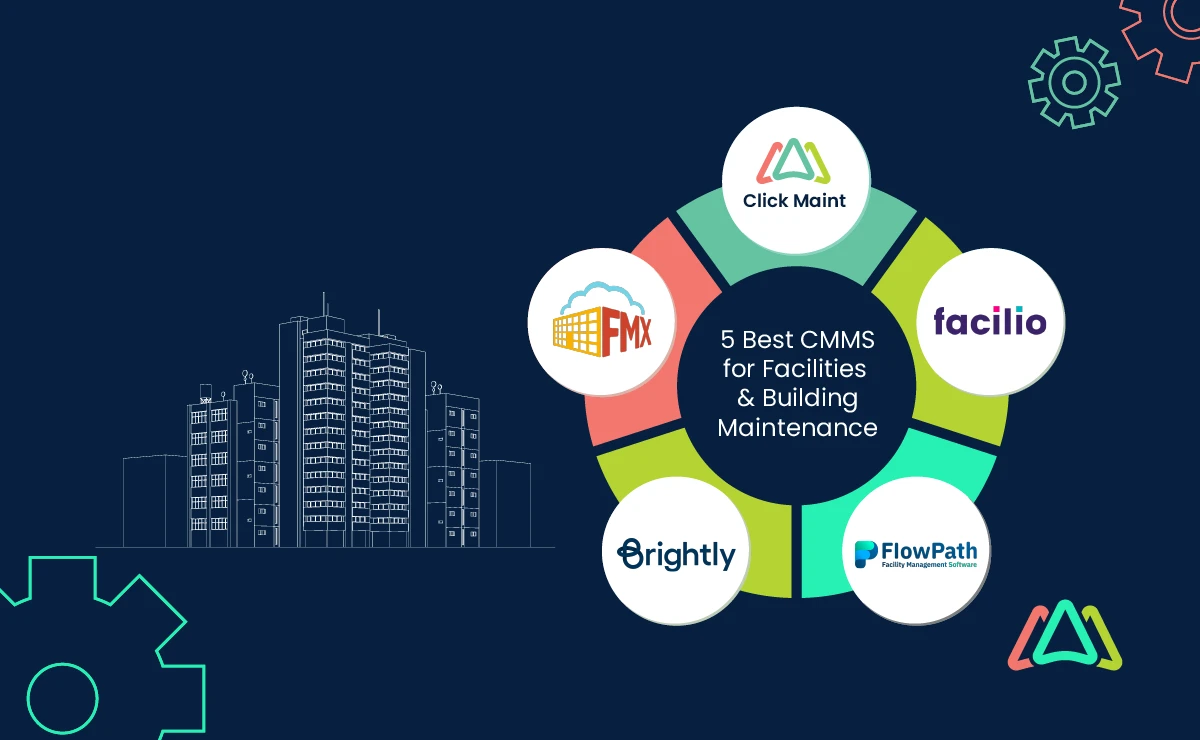Top Benefits of Total Facility Management for Streamlined Procedures
Total Facility Management (TFM) represents a strategic approach to boosting functional effectiveness by incorporating different services, such as maintenance and protection, under a unified management structure. This debt consolidation not only minimizes redundancies but additionally leverages information analytics for notified decision-making and predictive upkeep. TFM helps with streamlined interaction among stakeholders, aligning procedures with wider organizational purposes. The concern remains: what details advantages can companies harness from embracing TFM, and how might these advantages transform their functional landscape?
Enhanced Operational Performance
Enhanced functional performance is a primary advantage of implementing total facility management (TFM) techniques. TFM incorporates an extensive technique to managing a facility's resources, procedures, and infrastructure, eventually enhancing procedures. By consolidating different solutions-- such as upkeep, protection, cleansing, and space management-- TFM enhances and minimizes redundancies sychronisation among different operational functions.
The combination of modern technology more intensifies this efficiency. Advanced facility management systems provide real-time data analytics, making it possible for facility supervisors to make informed choices that improve workflow and source allocation. Anticipating upkeep strategies, for instance, prepare for tools failings prior to they happen, minimizing downtime and prolonging possession lifespan.
Additionally, TFM promotes standard procedures throughout different departments, ensuring consistency and top quality in solution shipment. This uniformity reduces functional disturbances and promotes a much more collaborative workplace. Consequently, workers can concentrate on their core duties, driving performance and improving overall efficiency.

Price Reduction and Cost Savings
Applying total facility management (TFM) not only improves operational performance however additionally considerably adds to set you back reduction and financial savings. By consolidating different solutions under a single management framework, companies can eliminate redundancies and enhance procedures, thus minimizing functional costs. TFM allows far better purchase strategies, enabling firms to negotiate bulk buying contracts with distributors and service companies, causing reduced rates.
Moreover, TFM emphasizes precautionary upkeep, which lessens unanticipated breakdowns and extends the lifespan of vital devices. This aggressive strategy not just lowers repair costs but also enhances the reliability of facilitiess, ensuring uninterrupted operations. Additionally, energy efficiency campaigns, often a key emphasis of TFM, bring about significant financial savings on energy expenses, as facilitiess are optimized for reduced power intake.
Improved Source Management
Effective resource management is a foundation of total facility management (TFM), making it possible for companies to enhance using their assets and labor force. By carrying out TFM methods, organizations can comprehensively analyze their source allowance, guaranteeing that every asset is made use of effectively and efficiently. This holistic strategy enables the identification of underperforming sources and the capacity for reallocation or enhancement.
Additionally, TFM assists in the content integration of modern technology for real-time surveillance of resources, which assists in anticipating maintenance requirements and avoiding pricey downtime. By leveraging information analytics, organizations can make educated decisions concerning source deployment, inevitably improving performance and minimizing waste.
Moreover, TFM advertises a culture of constant improvement, motivating groups to on a regular basis assess and refine their resource management methods. Total Facility Management. This positive stance not just minimizes functional disruptions however additionally fosters technology, as employees are equipped to suggest enhancements based upon their firsthand experiences with resource use
Streamlined Communication Channels
In total facility management, streamlined interaction networks play an essential function in promoting cooperation and efficiency across groups. Reliable interaction guarantees that all stakeholders, consisting of facility supervisors, maintenance staff, and provider, are straightened with organizational goals and operational needs. By establishing clear lines of communication, groups can promptly resolve concerns, share updates, and execute options, consequently decreasing downtime and boosting productivity.
With centralized communication platforms, information is quickly available, enabling real-time updates on upkeep demands, resource allowance, and job timelines. This openness not only minimizes misconceptions however likewise equips workers to make educated decisions rapidly. Streamlined interaction promotes far better sychronisation additional resources during emergencies, ensuring that all employees are notified and can respond promptly.

Boosted Emphasis on Core Activities
A key advantage of total facility management is the increased concentrate on core activities, allowing companies to focus on their key service purposes - Total Facility Management. By outsourcing non-core functions such as cleansing, security, and maintenance, business can redirect their resources and energy towards calculated campaigns that straight add to their affordable benefit and growth
Total facility management integrates various operational jobs under a solitary umbrella, cultivating performance and decreasing redundancy. This consolidation not only simplifies procedures yet additionally improves responsibility, making sure that every element of the facility operates sympathetically without drawing away interest from what genuinely matters-- core company functions.
Furthermore, this approach makes it possible for staff members to devote their effort and time to tasks that drive technology and boost client complete satisfaction, as opposed to obtaining slowed down by operational challenges. With a reliable facility management companion managing daily operations, companies can accomplish greater dexterity, respond promptly to market modifications, and maintain a sharper emphasis on their objective.
Ultimately, boosted concentrate on core tasks leads to enhanced overall performance, permitting organizations to reinforce their market position and meet their strategic objectives better. - Total Facility Management
Verdict
In verdict, Total Facility Management significantly boosts operational effectiveness by settling important solutions and leveraging information analytics for educated decision-making. Price reductions and enhanced source management add to overall financial savings, while streamlined communication channels foster partnership amongst stakeholders.
Total Facility Management (TFM) stands for a calculated strategy to enhancing functional performance by incorporating different services, such as upkeep and protection, under a unified management framework.Improved operational effectiveness is a main advantage of carrying out total facility management (TFM) strategies. Advanced facility management systems give real-time information analytics, allowing facility supervisors to make informed choices that improve workflow and source appropriation.Implementing total facility management (TFM) not just increases functional efficiency however also considerably contributes to set you back decrease and cost savings.Reliable resource management is a foundation of total facility management (TFM), allowing organizations to optimize the use of their properties and labor force.